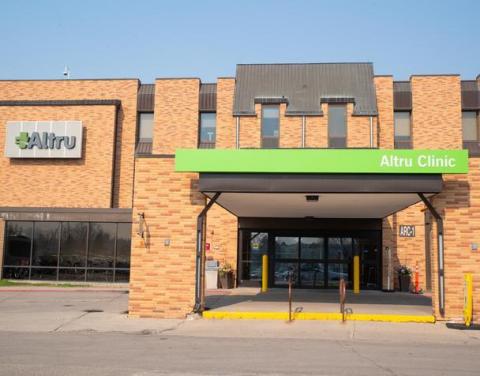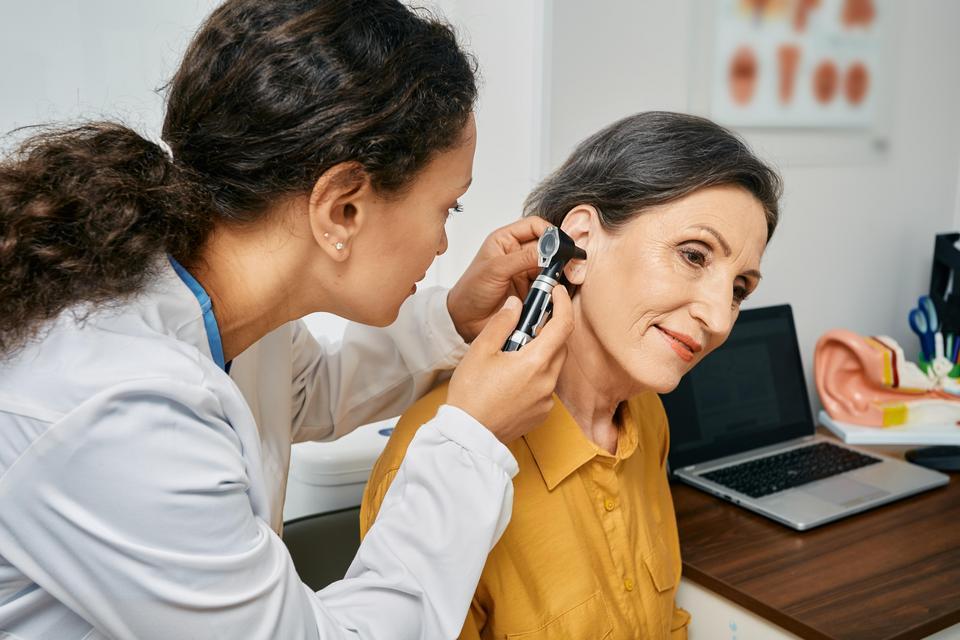Women’s healthcare needs change as they age. At Altru Health System, women’s gynecology providers tailor care to meet your needs, offering support, advice and treatment to help you live a healthy life. Our skilled team offers gynecological care that includes routine, preventive screenings and advanced treatment for gynecologic conditions.
Other services we offer include:
- Preconception appointments to help optimize your health before pregnancy
- Infertility evaluation and treatment
- Menopause management and hormone therapy
- Birth control counseling and prescriptions
- Sterilization
Conditions We Treat
Our gynecology and health providers treat many common conditions that affect women, including but not limited to:
- Endometriosis and adenomyosis
- Heavy, painful and/or irregular menstrual cycles
- Ovarian cysts
- Pelvic infections
- Pelvic organ prolapse
- Polycystic ovary syndrome (PCOS)
- Postmenopausal bleeding
- Precancerous conditions of the cervix, uterus and vagina
- Premenstrual syndrome (PMS) and premenstrual dysphoric disorder (PMDD)
- Sexual health issues, including painful sex and decreased sex drive
- Urinary incontinence
- Uterine fibroids
- Vaginal and vulvar pain, itching and dryness
Preventive Care and Screenings
Making healthy lifestyle choices, combined with regular visits with an OB-GYN, help ensure good health and well-being for women. Receiving regular preventive care and screenings allows your provider to detect conditions earlier and develop treatments sooner.
Preventive care we offer includes:
- Annual well-woman exams and physicals, in which your provider will discuss your health and family history and make recommendations on screenings and healthy lifestyle choices that fit your needs and goals
- Pap and human papillomavirus (HPV) tests, both of which help detect cervical cancer
- Breast cancer screenings, including mammography and ultrasound
- Bone density testing (DEXA or DXA scans), which your provider can use to measure your risk of developing osteoporosis
- Discussion about when to begin colon cancer screenings, depending on your risk factors and family history
- Immunizations that are age-appropriate
- Healthy lifestyle risk assessments
- Screening for sexually transmitted infections, such as chlamydia, genital herpes and HPV, among others
Gynecologic Surgeries
We provide several advanced gynecologic surgeries that can help treat or manage different conditions. These include:
- Minimally invasive hysterectomies, which can be performed using vaginal, laparoscopic or robotic approaches and are often used to treat heavy or painful periods, adenomyosis, uterine fibroids or endometriosis that does not improve with other forms of treatment.
- Laparoscopy and robotic surgery, a minimally invasive surgery that uses very small instruments inserted through the abdomen and results in faster recovery and less pain than traditional surgical techniques. Laparoscopy can be used to diagnose or treat a variety of gynecologic conditions. Laparoscopy can be used to evaluate pelvic pain, perform sterilization, and remove ovaries or ovarian cysts, for example.
- Hysteroscopy, in which your provider looks directly in the cervix and uterus. This procedure can be done to evaluate abnormal bleeding, remove an intrauterine device (IUD), treat heavy or irregular periods, or diagnose other health concerns related to the uterus.
- Endometrial ablation, which treats heavy menstrual bleeding.
- Tubal sterilization, often referred to as “getting your tubes tied,” a permanent and effective form of birth control that blocks or removes the fallopian tubes. Normally, the fallopian tubes carry an egg from the ovary to the uterus. Tubal sterilization blocks the path between the ovaries and the uterus, so the eggs cannot be fertilized.
- Vaginal and vulvar surgery
- Cervical LEEP and conization, which is used to remove precancerous or abnormal cells around the cervix. LEEP stands for loop electrosurgical excision procedure and is the most common method of conization.
- Pelvic prolapse surgery, a procedure to treat pelvic organ prolapse.
- Dilation and curettage, which may be done to treat a miscarriage or evaluate tissue from inside the uterus.
- Myomectomy, which allows a provider to remove uterine fibroids, if necessary.
To schedule an appointment with one of our OB-GYNs, please call 701.780.6900 or use MyChart.







